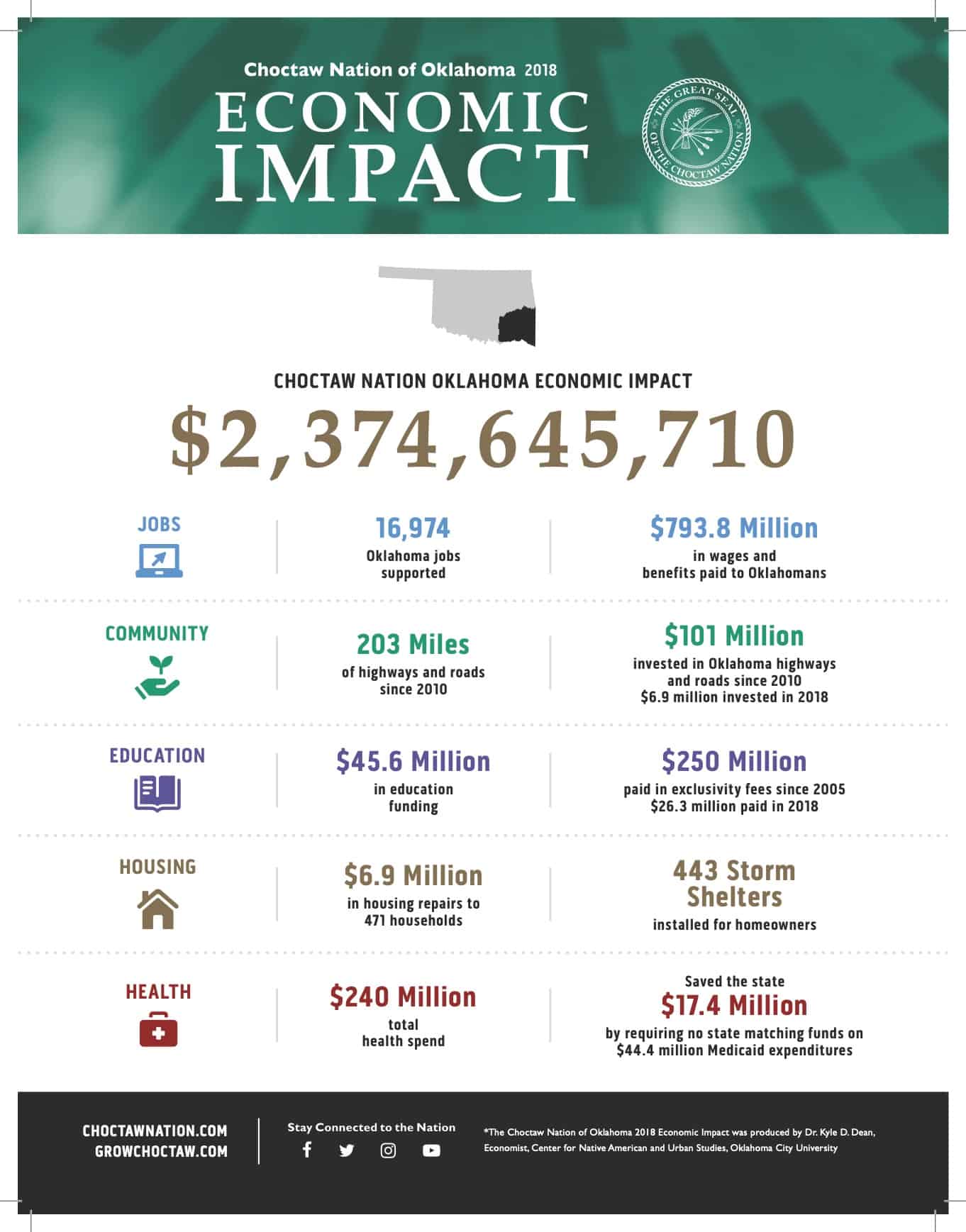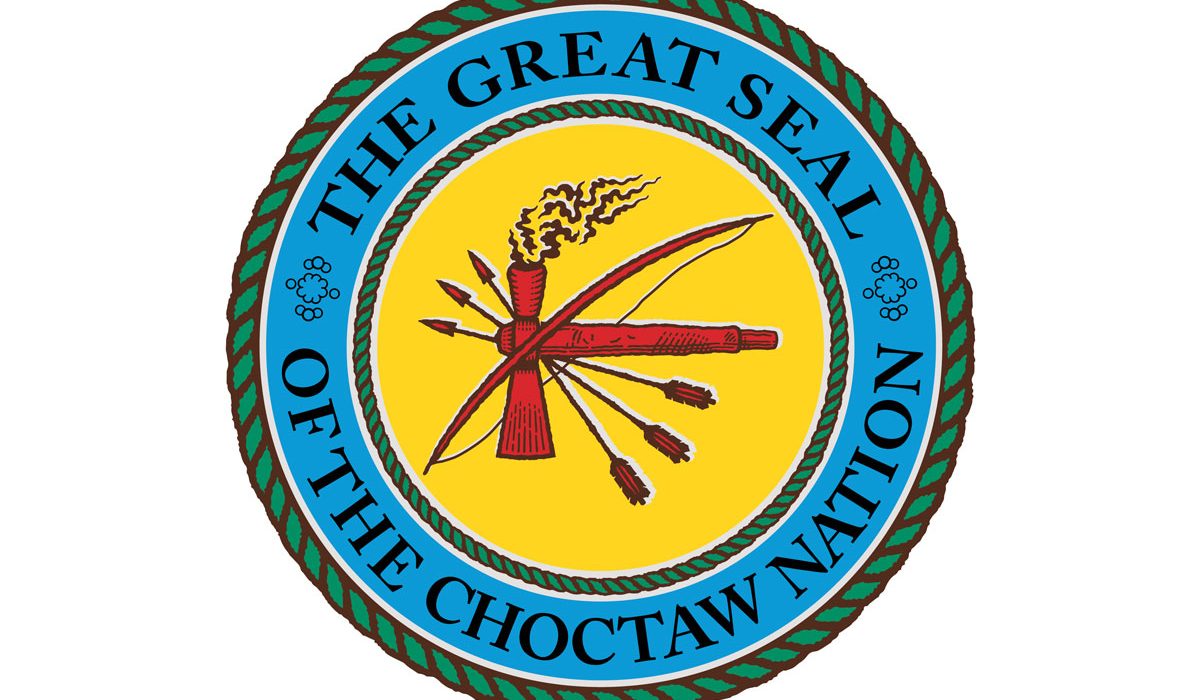Choctaw Nation
Michelle Weaver
DURANT – The Choctaw Nation of Oklahoma announced today that the Tribe had a significant $2,374,645,710 economic impact on the State of Oklahoma for 2018. Tribal officials made the announcement during a luncheon where several state, county, and local officials were present.
“The Choctaw Nation is a significant contributor to the state of Oklahoma,” said Dr. Kyle Dean, Economist for the Center for Native American and Urban Studies at Oklahoma City University. “With an economic impact of $2.4 billion, they are a significant economic driver in the state, and their impact is vital in counties in southeastern Oklahoma where the average poverty rate is 20 percent.”
The economic impact report, prepared by Dr. Kyle Dean, Economist for the Center for Native American and Urban Studies at Oklahoma City University, showed the Choctaw Nation is a driving force in southeastern Oklahoma, as well as the overall state. In 2018, the Tribe supported 16,974 Oklahoma jobs, represented $794 million in wages and benefits, and provided more than $1.7 million in job recruitment incentives to help grow the local economies.
“As our businesses grow and we create more jobs, the impact we make at the local and State level will increase and provide new opportunities for growth and prosperity to our tribal members and neighbors,” Chief Gary Batton said.
Education
The future of Oklahoma’s children, both tribal and non-tribal, is extremely important to Choctaw Nation leaders. Choctaw Nation has paid more than $250 million in exclusivity fees to the State according to the Gaming compact, including $26 million in 2018; these funds go directly to support public education state-wide. The study also showed Choctaw Nation funded over $45 million (beyond exclusivity fees) for educational programs, including $1.5 million to teach Choctaw language in 44 public schools; $7.1 million to fund over 9,300 higher education scholarships; and $3.3 million to fund the Partnership of Summer School Program that served 3,568 Oklahoma students’ in 74 schools.
Housing
The Choctaw Nation takes care of its people by providing for one of the most basic human needs: housing. Choctaw Nation built 80 new homes as part of the new Lease-to-Purchase (LEAP) homeownership program to provide a pathway to economic prosperity for Choctaw tribal members. In 2018, the Tribe invested more than $70 million in housing for new construction, homes repairs, home loans and storm shelters, and served more than 6,500 Choctaw tribal members.
Healthcare
Tribal healthcare is impactful for rural Oklahoma and Choctaw Nation strengthened the entire State’s infrastructure with state-of-the-art facilities, including nine clinics, 13 wellness, centers, two inpatient facilities, and one hospital in Talihina, Oklahoma. In 2018, Choctaw Nation spent $240 million to support healthcare for Oklahomans and provided 17,631 free flu shots, supported nearly 1 million patient-encounters, filled 1.4 million prescriptions, and had 436,021 visits to the wellness centers.
In the healthcare realm, Choctaw Nation saved the State of Oklahoma $17.4 million by requiring no state matching funds on $44.4 million in Medicaid expenditures.
Community
Choctaw Nation has invested more than $101 million in Oklahoma highways and roads since 2010, building over 203 miles and, in 2018, provided more than $3.8 million towards water projects. Additionally, the Tribe has recycled over 24 million pounds of material and hosted 3,000 students at summer youth camps and clinics in 2018.
About the Choctaw Nation of Oklahoma
The Choctaw Nation is the third-largest Indian Nation in the United States with nearly 200,000 tribal members and more than 10,000 employees. The first tribe over the Trail of Tears, the historic boundaries are in the southeast corner of Oklahoma. The Choctaw Nation’s vision, “Living out the Chahta Spirit of faith, family and culture,” is evident as it continues to focus on providing opportunities for growth and prosperity. For more information about the Choctaw Nation, its culture, heritage and traditions, please go to www.choctawnation.com.



